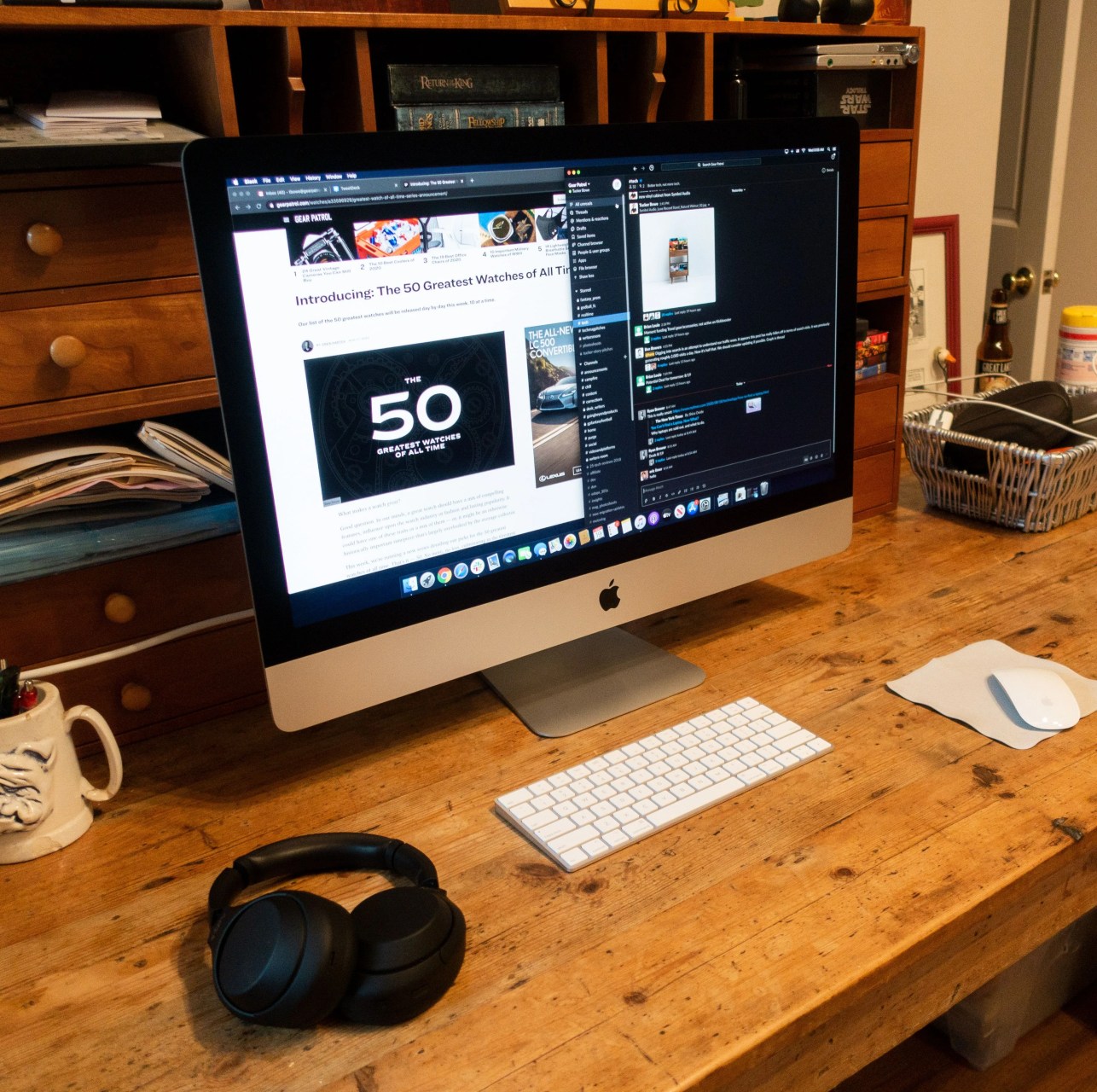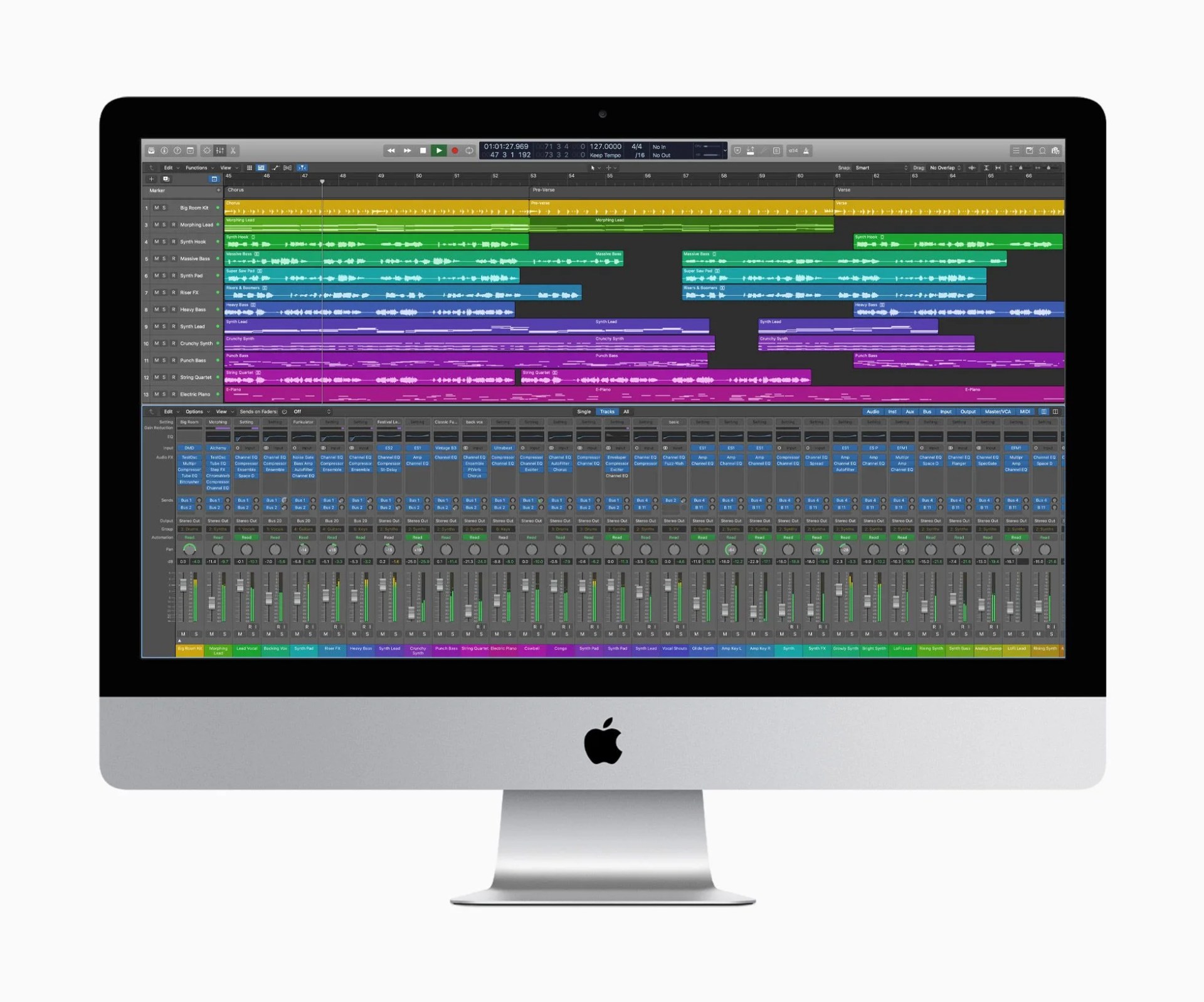It’s a laptop’s world, but for the better part of two weeks I’ve been using Apple’s new 27-inch iMac and there’s a lot to love about it. It’s not revolutionary. In fact, it looks identical to iMacs of the past. But if you, like me, are working from home, it’s one of the best deals you can get on a computer right now.
I’m on more video calls that I’ve ever been in my professional life and while pretty much all Mac laptops and desktops that have been released in the last few years have had a 720p webcam, the new iMac has a 1080 full HD webcam. But it’s not just a higher-resolution picture; Apple integrated certain technologies, such as face tracking, tone mapping and exposure control into the webcam, and the result is a picture that is good enough that I routinely get compliments from coworkers on its clarity. The improved microphones and speakers help with the video conference experience, too.
But for me, the biggest thing was getting back to a big display. For the past few months, I’ve been primarily using my 2016 MacBook Pro and its 13-inch display just feels absolutely tiny compared to the 21.5-inch iMac I have at our NYC office. There have been occasions during quarantine where I’ve used my iPad as a secondary screen for extra real estate via Sidecar, but it’s just not the same as a big, beefy screen. With the 27-inch iMac, I have room to open and work in two windows at once and, honestly, it makes a world of difference.
Apple is also offering the option of buying it with a nano-texture glass finish, which is the same anti-reflective finish found on Apple’s 32-inch Pro Display XDR monitor that costs $5,000. It’s an option at adds an extra $500 to the price of the iMac but it could make all the difference for creative professionals working in a well-lit room, though frankly the size of the screen is probably an improvement enough for most people.
 Tucker Bowe
Tucker BoweBut there is a little bit of a catch. A few months ago, Apple officially announced that future Macs are going to transition away from Intel’s chipsets, adopting Apple’s own ARM-based silicone chipsets, like the ones in its iPhones and iPads instead.
The new 27-inch iMac — like the coming round of upcoming MacBooks — still has an Intel chipset. It’s Intel’s latest-and-greatest 10th-generation processor, granted, but it’s not the future. Apple isn’t expected to release its first ARM-based Macs until late 2020, and has pledged to support legacy devices for much longer than that. So the new iMac isn’t an instant artifact, but it is already the past.

